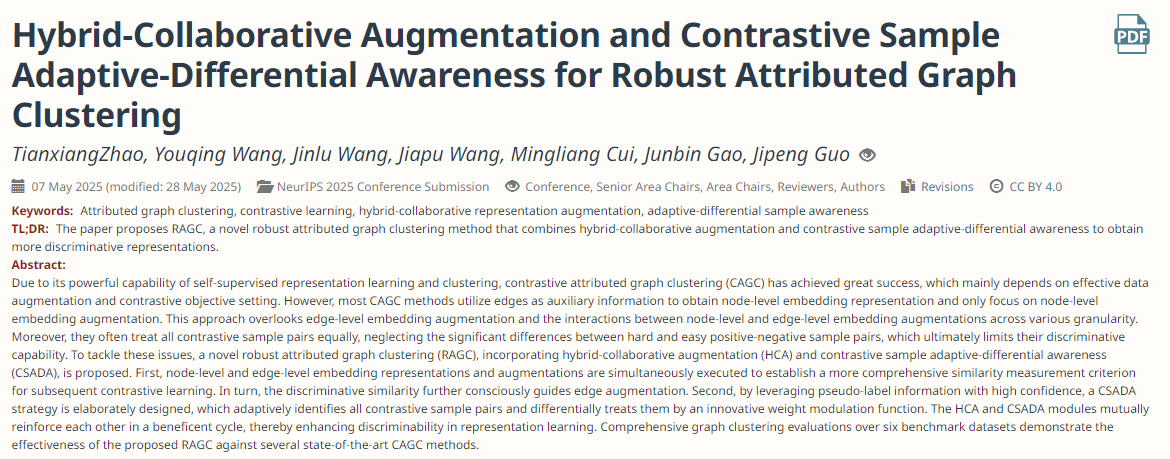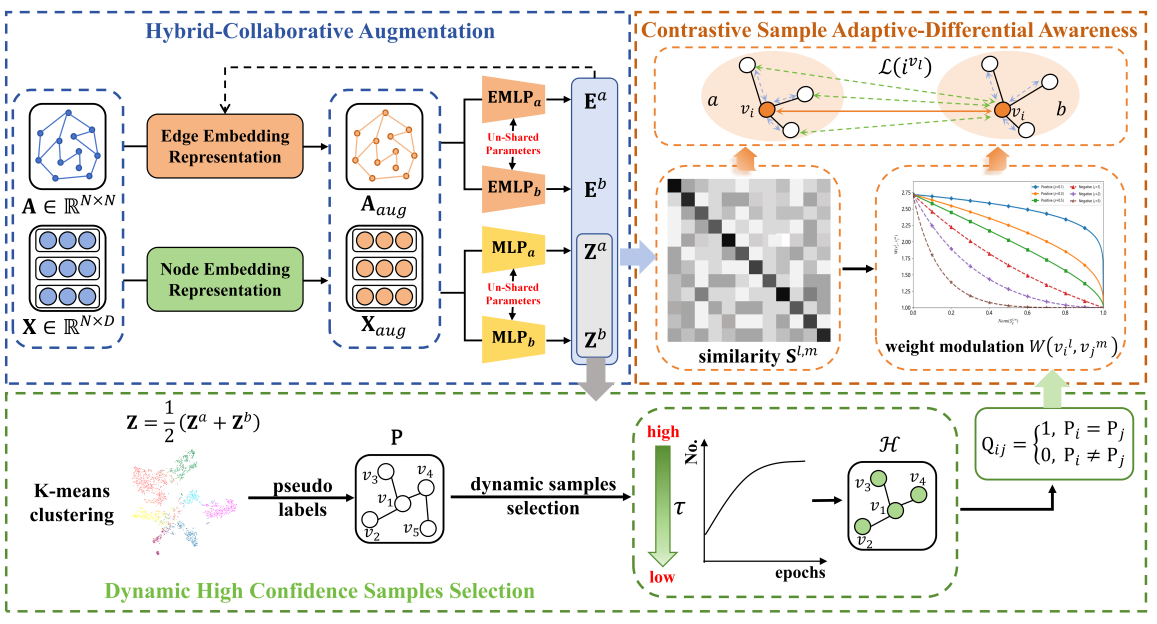Recently, the acceptance results for the 39th Annual Conference on Neural Information Processing Systems (NeurIPS 2025) were announced. The research paper titled Hybrid-Collaborative Augmentation and Contrastive Sample Adaptive-Differential Awareness for Robust Attributed Graph Clustering, led by Professor Wang Youqing from our school, was successfully accepted.
Zhao Tianxiang, a 2024-entry master’s student from the School of Information Science and Technology, is the first author of the paper. Professor Wang Youqing (the graduate student supervisor) serves as the second author, and Lecturer/Postdoctoral Fellow Guo Jipeng (the co-supervisor) is the corresponding author. Beijing University of Chemical Technology (BUCT) is listed as the first completing institution and the sole corresponding institution.

This study addresses the limitations of existing deep graph contrastive clustering methods, which lack enhancement and focus on structural information and ignore the differential awareness of contrastive sample pairs. To solve these issues, a novel Robust Attributed Graph Clustering (RAGC) method is proposed.
Most existing deep graph contrastive clustering methods only use edges as auxiliary information to obtain node-level embeddings, while neglecting edge-level embedding enhancement and the interaction between node-level and edge-level embedding enhancement at different granularities. Additionally, these methods often treat all contrastive sample pairs equally, failing to recognize the significant differences between hard, easy, positive, and negative sample pairs. This lack of differential focus ultimately limits their discriminative ability.
RAGC establishes a more comprehensive similarity metric for subsequent contrastive learning by simultaneously performing node-level and edge-level embedding representation and enhancement. Furthermore, it uses a dynamic similarity discrimination matrix to guide edge-level embedding enhancement. Secondly, by leveraging dynamically extracted high-confidence pseudo-label information, RAGC elaborately designs a contrastive sample adaptive differential awareness strategy. This strategy can adaptively identify contrastive sample pairs, realize adaptive differentiation of different contrastive sample pairs, and provide a more comprehensive and in-depth contrastive strategy for contrastive learning.

NeurIPS (Neural Information Processing Systems) is one of the top international conferences in the field of artificial intelligence (AI). Founded in 1987, it is hosted by the NeurIPS Foundation. According to the latest 2025 Academic Metrics (Google Scholar Metrics, GSM) released by Google, NeurIPS ranks 7th with an h5-index as high as 371.
As a CCF-A (Class A) top international academic conference in AI recommended by the China Computer Federation (CCF), NeurIPS, together with the International Conference on Machine Learning (ICML) and the International Conference on Learning Representations (ICLR), is known as one of the "Three Top Conferences in Machine Learning" in the AI field—renowned for their highest difficulty, top academic level, and strongest influence.
For NeurIPS 2025, a total of 21,575 valid submissions were received, and 5,290 papers were finally accepted, resulting in an acceptance rate of 24.52%. The acceptance of this paper marks a breakthrough in our school’s achievements at top AI conferences.
This work was supported by projects including the National Natural Science Foundation of China.
